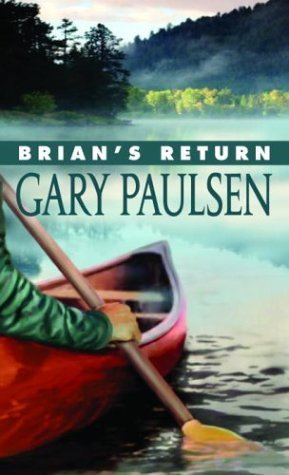TL;DR
In 'Brian's Return' by Gary Paulsen, sixteen-year-old Brian Robeson struggles to adapt to life after surviving in the wilderness, ultimately realizing that his true home lies back in nature.
What is Brian's Return about
'Brian's Return' continues the journey of Brian Robeson, who is grappling with the challenges of fitting into high school life after his survival experiences in the wilderness. Despite his previous triumphs over adversity, Brian feels more isolated in civilization than he did when he was alone in the wild. A psychologist named Caleb, who is blind and an ex-police officer, recognizes that Brian's heart belongs to the wilderness. Following Caleb's advice, Brian decides to return to the Canadian wilderness, seeking to find his true identity and purpose. This novel captures themes of belonging, self-discovery, and the contrast between civilization and nature.
Brian's Return 5 Key Takeaways
Brian struggles to fit into high school life after his wilderness survival.
Returning from his harrowing experiences in the wilderness, Brian Robeson finds himself feeling disconnected and alienated among his peers, unable to relate to their concerns.
Brian seeks help from a psychologist named Caleb.
Caleb, a blind ex-police officer, recognizes Brian's internal turmoil and suggests that he confront his feelings by returning to the wilderness, where he felt most alive.
Brian makes the decision to return to the wilderness.
After reflecting on his life and the challenges he faces in civilization, Brian realizes that he must go back to the Canadian wilderness to rediscover his purpose and sense of belonging.
Brian's journey explores themes of identity and belonging.
Throughout his adventure, Brian confronts his inner struggles and ultimately seeks a place where he can find peace and clarity about who he is.
Brian experiences the freedom and solace of nature.
As he immerses himself back into the wild, Brian reconnects with the environment that once supported him, leading to profound insights into his identity and life choices.
Top Brian's Return Quotes
- "Home isn't just a place; it's where you find your heart."
- "The wilderness is not just a backdrop; it's where I truly belong."
Who should read Brian's Return?
'Brian's Return' is ideal for young readers aged 9 to 13 who enjoy adventure and stories of self-discovery. The book encourages them to reflect on their own identities and the places they feel most at home, making it both engaging and meaningful.
Brian's Return Best Reviews
- 'Brian's Return' is a poignant continuation of Brian's story, exploring the deep connection between man and nature.' - School Library Journal
- Gary Paulsen's masterful storytelling keeps readers engaged as Brian's journey unfolds, showcasing the importance of self-discovery.' - BookPage
People also liked these summaries
Brian's Return FAQs
What is the reading level of 'Brian's Return'?
'Brian's Return' is suitable for readers aged 9 to 13 and is often recommended for sixth graders due to its engaging narrative and developmental themes.
How does 'Brian's Return' relate to the other books in the Brian series?
'Brian's Return' serves as a sequel to 'Hatchet', 'The River', and 'Brian's Winter', continuing Brian Robeson's story as he navigates life after his wilderness survival experiences.
What key themes are explored in 'Brian's Return'?
The book delves into themes of identity, belonging, and the contrasting experiences of civilization versus nature, as Brian searches for where he truly fits in.
